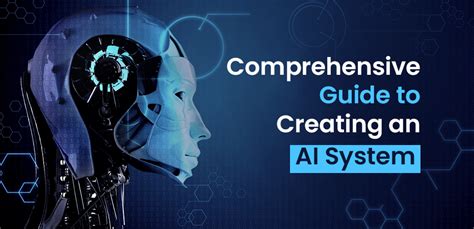Introduction
The advent of artificial intelligence (AI) has revolutionized the way we interact with technology. From self-driving cars to facial recognition software, AI is rapidly becoming an integral part of our lives. Now, with the availability of easy-to-use AI development tools, businesses and individuals can harness the power of AI to create their own innovative applications.

In this comprehensive guide, we will delve into the steps involved in creating an app with AI. We will explore the different types of AI, discuss the benefits of using AI in app development, and provide detailed instructions on how to create your own AI-powered app.
Types of AI
AI encompasses a wide range of technologies, each with its own unique capabilities. The most common types of AI used in app development include:
- Machine Learning (ML): ML algorithms enable computers to learn from data without explicit programming. They can be used to identify patterns, predict outcomes, and automate tasks.
- Natural Language Processing (NLP): NLP allows computers to understand and generate human language. It can be used to create chatbots, language translation tools, and text analysis systems.
- Computer Vision (CV): CV algorithms enable computers to “see” and interpret images and videos. They can be used to detect objects, recognize faces, and analyze facial expressions.
Benefits of Using AI in App Development
Integrating AI into app development offers numerous benefits, including:
- Increased Efficiency: AI can automate tasks that are currently time-consuming or error-prone. This frees up developers to focus on more innovative and strategic initiatives.
- Improved User Experience: AI can enhance user engagement by providing personalized recommendations, offering real-time assistance, and improving the overall functionality of the app.
- Competitive Advantage: By leveraging AI, businesses can create unique and innovative applications that differentiate them from competitors.
Steps to Create an App with AI
Creating an app with AI involves the following steps:
- Define Your Goal: Clearly define the problem that your app will solve or the opportunity it will create.
- Choose the Right AI Technology: Select the type of AI that best aligns with your app’s goals and requirements.
- Gather Data: Collect and prepare the data that will train your AI model.
- Train the Model: Use machine learning or deep learning techniques to train your AI model on the collected data.
- Integrate AI into Your App: Implement the trained AI model into your app’s code.
- Test and Deploy: Thoroughly test your app and deploy it to the target platform.
Tips for Creating an Effective AI App
- Focus on User Value: Ensure that your AI app provides tangible benefits to users. Avoid gimmicks and focus on creating a solution that solves a real-world problem.
- Consider Privacy and Ethics: Be mindful of the ethical implications of using AI. Ensure that your app respects user privacy and complies with relevant regulations.
- Iterate and Improve: AI apps should be continuously evaluated and improved. Monitor user feedback and data to identify areas for enhancement.
Common Mistakes to Avoid
- Overestimating AI Capabilities: Do not assume that AI can solve any problem. Carefully evaluate the limitations of AI technology and use it appropriately.
- Neglecting Data Quality: The quality of the data you use to train your AI model has a significant impact on its performance. Ensure that your data is accurate, complete, and relevant.
- Ignoring User Experience: AI should not be an afterthought. Integrate AI into your app in a way that enhances the user experience, not detracts from it.
FAQs
1. What are the best AI development tools for beginners?
There are numerous AI development tools available for beginners, including TensorFlow Lite, Keras, and Scikit-learn.
2. How much does it cost to create an AI app?
The cost of creating an AI app varies depending on the complexity of the app, the type of AI used, and the development team.
3. Can I create an AI app without coding?
Yes, it is possible to create an AI app without coding using no-code or low-code development platforms.
4. What are some creative ideas for AI apps?
- Personalized Health Assistant: Track health metrics, provide personalized health recommendations, and connect users to healthcare professionals.
- Decision-Making Assistant: Identify and evaluate options, provide recommendations, and optimize decision-making processes.
- Predictive Maintenance: Monitor equipment and machinery, predict maintenance needs, and minimize downtime.
5. How can I ensure the security of my AI app?
Implement strong security measures, such as encryption, authentication, and regular security updates.
6. What are the ethical implications of creating AI apps?
Consider the impact of AI on privacy, bias, and employment. Ensure that your app complies with ethical guidelines and regulations.
Creating an app with AI has become increasingly accessible, empowering businesses and individuals to develop innovative solutions to real-world problems. By following the steps outlined in this guide, you can create AI-powered apps that enhance user experience, drive efficiency, and gain a competitive advantage. However, it is crucial to approach AI development with a focus on user value, data quality, ethical considerations, and continuous improvement. By embracing these principles, you can create AI apps that transform industries and improve lives.
